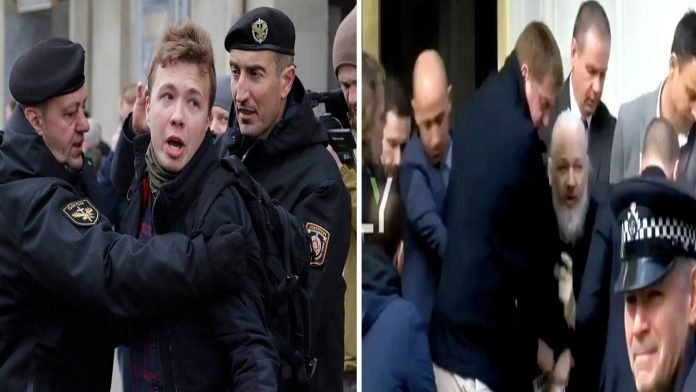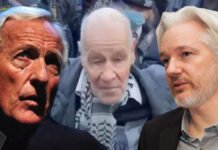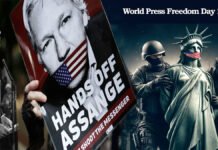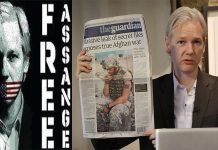I know that the English intelligentsia have plenty of reason for their timidity and dishonesty, indeed I know by heart the arguments by which they justify themselves. But at least let us have no more nonsense about defending liberty against Fascism. If liberty means anything at all it means the right to tell people what they do not want to hear. The common people still vaguely subscribe to that doctrine and act on it. – George Orwell
Freedom of expression and freedom of the press is fundamental to a democratic society. It seeks out and circulates news, information, ideas, comment and opinion and holds those in authority to account.
Freedom of expression is a universal human right. It is not the prerogative of the politician. Nor is it the privilege of the journalist. In their day-to-day work, journalists are simply exercising every citizen’s right to free speech. With the advent of the internet came Bloggers who have continued that tradition of expression, They are the unfettered voices of freedom they are in the main outside the collective voice of the established media, in a democratic society political Bloggers/Journalist have every right to contest, criticise and organise against their government through protest and peaceful means. In fact, their rights are written in legislation.
Where it is true that Belarus is not a signatory of the European Convention for the Protection of Human Rights and Fundamental Freedoms (ECHR) and therefore falls outside of Article 10: Article 10 of the Human Rights Act: Freedom of expression:
- Everyone has the right to freedom of expression. This right shall include freedom to hold opinions and to receive and impart information and ideas without interference by public authority and regardless of frontiers. This Article shall not prevent States from requiring the licensing of broadcasting, television or cinema enterprises.
However, Belarus has ratified the International Covenant for Civil and Political Rights (ICCPR). and this does give the people the rights and freedoms of expression.
Article 19
1. Everyone shall have the right to hold opinions without interference.
2. Everyone shall have the right to freedom of expression; this right shall include freedom to seek, receive and impart information and ideas of all kinds, regardless of frontiers, either orally, in writing or in print, in the form of art, or through any other media of his choice.
If a democracy uses violence and incarceration against its critics’ and opposition it ceases to be a democracy and enters the dark realms of a Authoritarianism.
Unfortunately for Roman Protasevich the 26-year-old journalist who worked for Poland-based online news service NEXTA, which broadcast footage of protests against Belarusian President Alexander Lukashenko last year those rights have been trampled.
Protasevich worked for the small Nexta team based in Poland, but also works closely with Belarusian dissidents in neighbouring Lithuania. The main opposition leader, Svetlana Tikhanovskaya, lives in Lithuania. Both countries, unlike Belarus, are members of Nato and the EU.
Protasevich used Telegram a secure messaging app for smartphones to monitor and report on Belarus protest against Alexander Lukashenko – Telegram is one of very few ways Belarusian dissidents have been able to organise, as the authorities have cracked down hard on independent media, blocking opposition websites during last year’s giant protests.
The growing Nexta Live – pronounced “nekhta”, meaning “somebody” in Belarusian – now has more subscribers than the Nexta channel. Nexta Live’s posts included crowd-sourced photos and videos of police brutality and informed people about opposition rallies and strikes.
Protasevich has said the Nexta project is independent and receives no funding from abroad and relies on ad revenue. It was launched by Mr Putilo in 2015 as a YouTube music channel, but soon switched to focus on political content.
At the height of the protests in Belarus against the dictatorship of Alexander Lukashenko last August Nexta was getting hundreds of messages an hour from citizen journalists, Mr Protasevich told the BBC.
When asked by BBC Russian if Nexta was a protest hub or a media outlet, Mr Protasevich said: “It is hard to say who we are. I guess we are primarily Belarusians who would like to come home and live in a free country without dictatorship.”
He faces extremism charges in Belarus, including organising mass riots and inciting social hatred, related to the protests late last year.
He denies these allegations but could face up to 15 years in jail if convicted.
Roman Protasevich now works for Belamova, a different Telegram channel.
Roman Protasevich and his partner Sofia Sapega have shown extreme bravery in their use of media and social media to bring about change within Belarus.
How Belarus has blurred lines over arrest
Alistair Coleman, BBC Monitoring Disinformation Specialist analysis
Belarusian authorities have muddied the waters over the detention of Mr Protasevich and how the Ryanair flight was forced to land.
Aside from a new air traffic control transcript that contradicts the version of events given by Belarusian state TV, the pro-Lukashenko press has portrayed the dissident journalist as an extremist with right-wing sympathies.
Belarus Segodnya, a newspaper published by the presidential administration, has claimed that Mr Protasevich was a mercenary who fought in eastern Ukraine with the nationalist Azov Battalion, which has been accused of neo-Nazi links.
Mr Protasevich confirmed in an interview last year that he had spent a year in the conflict-hit Donbas region and was wounded, but said he was covering the conflict as a journalist and photographer.
A former commander of the Azov unit has backed Mr Protasevich’s version of events, confirming that he spent time with them as a journalist and was wounded.

A photograph on the front cover of an Azov Battalion magazine from July 2015, which shows an armed man in army fatigues who bears a resemblance to Mr Protasevich, has been shared by his critics as “evidence” that he was there in a military capacity. But neither the image nor the claim of his involvement with the Azov regiment have been independently verified. This is a very interesting read and shines more light on that bit of the propaganda war asking the question is Roman Protasevich a Journalist or soldier?
The case of Roman Protasevich should not be undermined or diluted in any respect, when a country forces down a commercial aeroplane, abducts and incarcerates a Blogger/journalist we should all shout in anger and dismay. This is not just an illegal kidnapping of a journalist this is an attack on all our liberties.
We should be absolutely outraged at the method and state abduction of Roman Protasevich, but…
The Hypocrisy of the West.
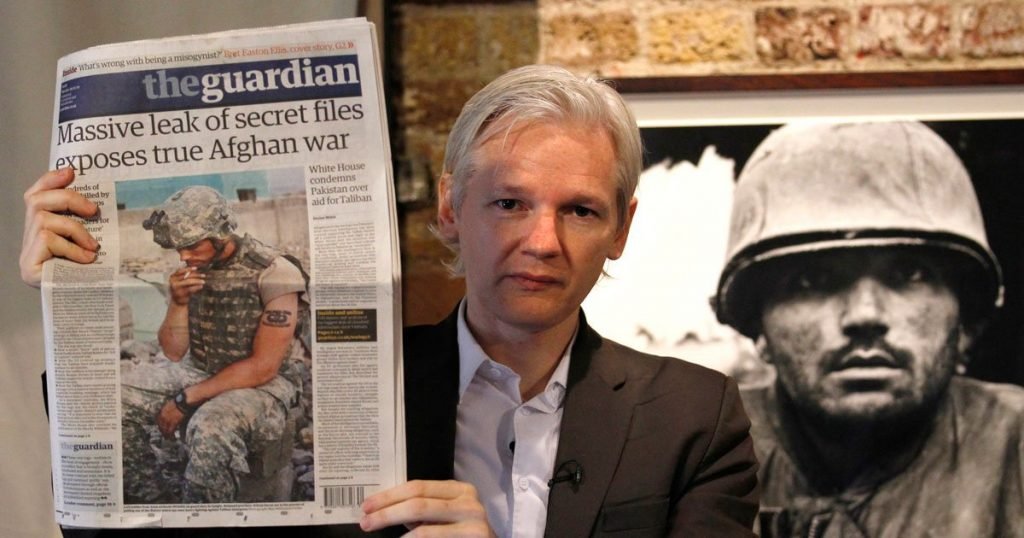
However, call me a cynic, I cannot help but see the hypocrisy carried out by western governments when here in the UK WikiLeaks founder Julian Assange’s is incarcerated at Her majesty’s pleasure in Belmarsh a high security prison.
Julian Assange has now been incarcerated in Belmarsh high security jail since he was carried out of the Ecuadorian embassy in London by police before being arrested for breaching his bail conditions in April 2019.
He had entered the embassy in 2012 after exhausting all legal avenues to avoid extradition to Sweden to face sex offence allegations, which he has always denied and were eventually dropped.
He was found guilty of breaching the Bail Act and sentenced to 50 weeks in prison. The United States government unsealed an indictment against Assange, related to the leaks provided by Chelsea Manning. On 23 May 2019, the United States government further charged Assange with violating the Espionage Act of 1917.
The Americans claim Assange’s receipt and publishing of tens of thousands of classified military and diplomatic documents about the Iraq and Afghanistan wars put lives in danger.
The raw data appeared on the WikiLeaks website in 2010, while edited versions were published in newspapers, including the UK’s Guardian who subsequently has done nothing to support Julian Assange.
Extradition refused

On Monday district Judge Vanessa Baraitser ruled that while US prosecutors met the tests for Mr Assange to be extradited for trial, the US was incapable of preventing him from attempting to take his own life.
She outlined evidence of his self harm and suicidal thoughts and said: “The overall impression is of a depressed and sometimes despairing man fearful for his future.”
She said: “Faced with the conditions of near total isolation without the protective factors which limited his risk at HMP Belmarsh, I am satisfied the procedures described by the US will not prevent Mr Assange from finding a way to commit suicide and for this reason I have decided extradition would be oppressive by reason of mental harm and I order his discharge.”
Right result wrong reason
The request to extradite Julian Assange should have been refused for so many other reasons, not least to protect investigative journalism, free speech, freedom of the press along with the rights of journalists to act on information brought by whistleblowers, information that brought to light wrongdoing by governments who attempt to cover-up crimes and murder of committed by its military’s actions in the people’s name. Actions that resulted in the killing of more than a dozen innocent Iraqis, including two Reuters journalists.
The footage leaked by private Manning led to global outrage, reigniting a debate over the US’s occupation of Iraq and wider presence in the Middle East.
Julian Assange has been a remand prisoner for over 550 days when the guidelines state nobody in the UK should be kept on remand for more than 180 days.
Assange was due for a release on Sept. 22. 2019, but he is being held for longer on “substantial grounds” that he would abscond.
Speaking at a special press conference held by the Foreign Press Association, Hrafnsson described WikiLeaks co-founder Assange a “political prisoner”.
He said: “It is a highly political case. It was political in 2010 when the U.S. government wanted to take down WikiLeaks. It was political when people were calling the assassination of Assange.”
The case was political when then-CIA chief and now U.S. Secretary of State Mike Pompeo described WikiLeaks as a “non-state hostile intelligence service” or when U.S. Vice President Mike Pence travelled to Ecuador twice to convince the leaders of the Latin American country to have a deal of extradition of Assange in return of a $10 billion debt write-off from the IMF and the World Bank, Hrafnsson added.
He also said: “I say repeatedly that Julian Assange is a political prisoner… and therefore we need to rely on politicians to turn this around,” adding that he “would not be worried at all” if it was a normal case “but this is a political case and what’s at stake is not just life of Julian Assange who faces 175 years of in prison if extradited; it is the future of journalism.”
“This is the greatest attack on journalism… in the world,” he stressed.
“In this country intellectual cowardice is the worst enemy a writer or journalist has to face, and that fact does not seem to me to have had the discussion it deserves.” -George Orwell
The condemnation from governments around the world at Julian Assange’s imprisonment is deafening in its silence. Journalists that feed from the WikiLeaks cable like pigs in a troth have found the kind of writer’s block that only cowards and agents of the establishment contract, both have no cure.
Trump’s gone what’s the problem?
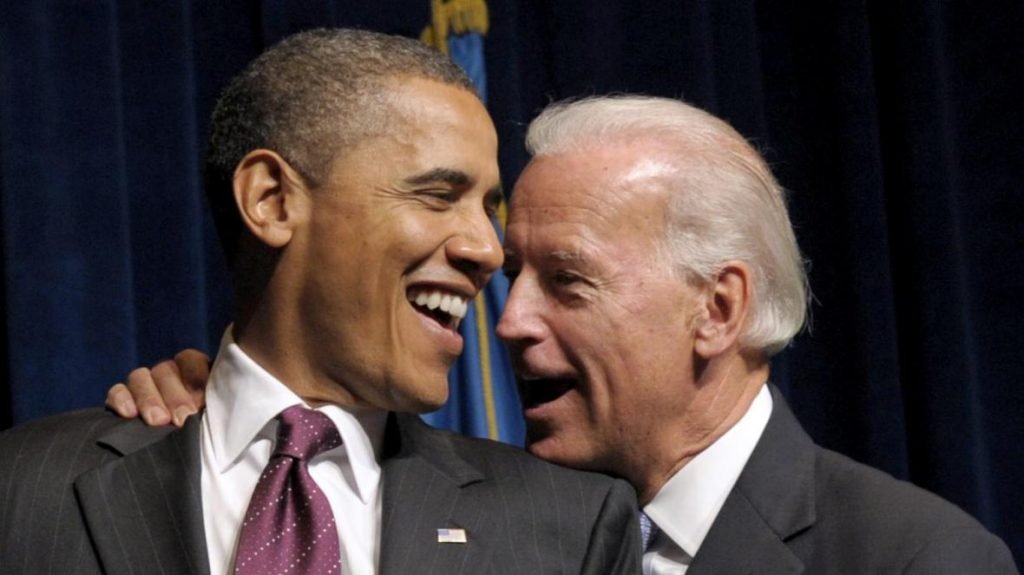
For the many that looked at Joe Biden to bring an end to this act of vengeance by the united states, they only found disappointment, after all, Assange was being hunted under the tenure of Barack Obama as president and Joe Biden as vice president just as vigorously as it was under Trump.
Forcing down Evo Morales’s plane was an act of air piracy
Ironically it was under Barack Obama as president and Joe Biden as vice president that we witnessed the same kind of state sponsored piracy that brought down the plane Roman Protasevich was traveling on, as John Pilger stated in his 2013 article the ‘Forcing down Evo Morales’s plane was an act of air piracy‘
John Pilger writes on the forcing down of Bolivian President Evo Morales’s plane – denied airspace by France, Spain and Portugal, followed by his 14-hour confinement while Austrian officials demanded to “inspect” his aircraft for the “fugitive” Edward Snowden – was an act of air piracy and state terrorism. It was a metaphor for the gangsterism that now rules the world and the cowardice and hypocrisy of bystanders who dare not speak its name.
Imagine the aircraft of the president of France being forced down in Latin America on “suspicion” that it was carrying a political refugee to safety – and not just any refugee but someone who has provided the people of the world with proof of criminal activity on an epic scale.
Imagine the response from Paris, let alone the “international community”, as the governments of the west call themselves. To a chorus of baying indignation from Whitehall to Washington, Brussels to Madrid, heroic special forces would be dispatched to rescue their leader and, as sport, smash up the source of such flagrant international gangsterism. Editorials would cheer them on, perhaps reminding readers that this kind of piracy was exhibited by the German Reich in the 1930s.
Historians seem to agree that the rise of fascism in Europe might have been averted had the liberal or left political class understood the true nature of its enemy. The parallels today are very different, but the Damocles sword over Snowden, like the casual abduction of Bolivia’s president, ought to stir us into recognising the true nature of the enemy.
Snowden’s revelations are not merely about privacy, or civil liberty, or even mass spying. They are about the unmentionable: that the democratic facades of the US now barely conceal a systematic gangsterism historically identified with, if not necessarily the same as, fascism.
The US are hell bent on their revenge.

Lawyers for the US government have sought the extradition of Assange to the US to face 17 charges under the Espionage Act of 1917 and one charge of computer misuse. At the heart of their case is the accusation that in leaking a trove of classified US diplomatic and military cables in 2010, Assange and WikiLeaks endanger the lives of US agents and informants.
One of the many peculiarities in this strange case is that the evidence for any such thing is non-existent. The Pentagon has admitted that it failed to find a single person covertly working for the US who had been killed as a result of the WikiLeaks disclosures. This failure was not for lack of trying: The Pentagon had set up a special military task force, deploying 120 counter-intelligence officers, to find at least one death that could be blamed on Assange and his colleagues but had found nothing.
Other allegations against Assange put forward by the lawyers for the US government are similarly flimsy or demonstrably false, yet he is still in real danger of being sent to a maximum security prison in the US after the court makes its ruling on 4 January. Once there he faces a sentence of up to 175 years and, whatever the length of his incarceration, he is likely to spend it in solitary confinement in a tiny cell.
The Assange case creates a precedent that mortally threatens freedom of the press in Britain. If Assange is extradited then any journalist who publishes information that the American authorities deem to be classified, however well-known or harmless it may be, will risk being extradited to face trial in America. The then US secretary of state, Mike Pompeo, says that non-Americans like Assange do not enjoy ‘First Amendment rights to free expression.
1. Everyone has the right to freedom of expression. This right shall include freedom to hold opinions and to receive and impart information and ideas without interference by public authority and regardless of frontiers.
Britain and the US are going further down the same path towards “illiberal democracy” as Turkey, Hungary, Brazil, India and the Philippines and of course, Belarus.
What Assange and WikiLeaks did – obtaining important information about the deeds and misdeeds of the US government and giving that information to the public – is exactly what all journalists ought to do.
Where is the EU support for Julian Assange? Where is the world calling out the act of vengeance the US are vehemently employing against Julian Assange? Where is the outcry at the UK acting as a willing accomplice in this attack on press freedoms?
Ken Loach calls out Sir Keir Starmer, what were his dealings in the Julian Assange case
Julian Assange is denied bail by London court
Help Us Sustain Ad-Free Journalism
Sorry, I Need To Put Out the Begging Bowl
Independent Journalism Needs You
Our unwavering dedication is to provide you with unbiased news, diverse perspectives, and insightful opinions. We're on a mission to ensure that those in positions of power are held accountable for their actions, but we can't do it alone. Labour Heartlands is primarily funded by me, Paul Knaggs, and by the generous contributions of readers like you. Your donations keep us going and help us uphold the principles of independent journalism. Join us in our quest for truth, transparency, and accountability – donate today and be a part of our mission!
Like everyone else, we're facing challenges, and we need your help to stay online and continue providing crucial journalism. Every contribution, no matter how small, goes a long way in helping us thrive. By becoming one of our donors, you become a vital part of our mission to uncover the truth and uphold the values of democracy.
While we maintain our independence from political affiliations, we stand united against corruption, injustice, and the erosion of free speech, truth, and democracy. We believe in the power of accurate information in a democracy, and we consider facts non-negotiable.
Your support, no matter the amount, can make a significant impact. Together, we can make a difference and continue our journey toward a more informed and just society.
Thank you for supporting Labour Heartlands
